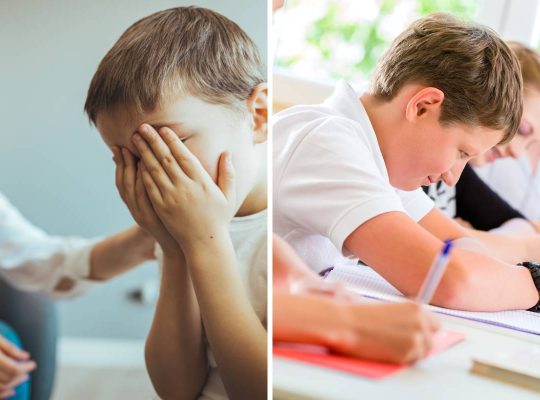Sleep is a powerful ally for mental health, yet chronic sleep deprivation is an insidious threat lurking in the shadows of our 24/7 society. As countless children and adults sacrifice precious hours of slumber to the demands of modern life, a growing body of research reveals the profound and far-reaching consequences of this silent epidemic on our psychological well-being. From exacerbating symptoms of anxiety and depression to triggering manic episodes and psychotic breaks, the toll of sleep loss on the human mind cannot be overstated. In this article, we will explore the complex interplay between sleep and mental health, shedding light on the urgent need to prioritize rest as a fundamental pillar of mental wellness.
How Sleep Impacts Mental Health in Children

The Sleep-Brain Connection
Sleep plays a crucial role in brain health, especially when it comes to processing emotions and memories. During sleep, particularly in the REM stage, the brain actively works to consolidate memories, transferring them from short-term to long-term storage. This process helps the brain organize and make sense of the day’s experiences, aiding in emotional regulation and overall mental well-being. Additionally, sleep allows the brain to clear out toxins and waste products that accumulate during waking hours, promoting optimal cognitive function. When children consistently lack adequate sleep, their brains may struggle to effectively process and manage emotions, leading to mood disturbances, irritability, and a heightened risk of developing mental health issues such as anxiety and depression. Prioritizing healthy sleep habits is essential for supporting children’s emotional development and mental resilience.
Consequences of Sleep Deprivation
Chronic sleep deprivation can have serious consequences for kids’ mental health. Insufficient sleep is linked to increased irritability, mood swings, and difficulty regulating emotions. Children who regularly don’t get enough sleep are at higher risk for developing anxiety, depression, and even suicidal thoughts. Sleep-deprived kids often struggle with attention, memory, and decision-making, which can lead to academic and behavioral problems at school. They may also be more prone to impulsivity and risk-taking behaviors. In some cases, lack of sleep can even trigger or exacerbate symptoms of ADHD, bipolar disorder, and other mental health conditions. If you notice your child is consistently tired, moody, or having trouble at school, it’s important to talk to your pediatrician. Establishing healthy sleep habits early on is crucial for supporting your child’s mental wellbeing and helping them thrive.

Mental Disorders Linked to Lack of Sleep
Anxiety Disorders
Sleep deprivation can be a significant trigger for anxiety disorders in children. When kids don’t get enough quality sleep, their brains struggle to regulate emotions effectively, leading to heightened feelings of worry, fear, and unease. Chronic sleep loss may cause children to feel overwhelmed by everyday stressors, making it harder for them to cope with challenges at school or in social situations. Additionally, lack of sleep can exacerbate pre-existing anxiety conditions, intensifying symptoms and making it more difficult for children to manage their anxious thoughts and feelings. By prioritizing healthy sleep habits and addressing any underlying sleep issues, parents and caregivers can help reduce the risk of anxiety disorders in their children.
Depression
Sleep disturbances and depressive disorders often go hand in hand, creating a complex, bidirectional relationship. Insufficient sleep can trigger or exacerbate symptoms of depression, while depression itself can lead to insomnia or hypersomnia. This vicious cycle can be particularly challenging for children and adolescents, whose developing brains are more vulnerable to the effects of sleep deprivation. Research suggests that addressing sleep issues early on may help prevent or alleviate depressive symptoms in young people. By prioritizing healthy sleep habits and seeking professional support when needed, families can break the cycle and promote better mental health outcomes for their children.
ADHD
Sleep deprivation can significantly impact attention and hyperactivity symptoms in children, potentially exacerbating or mimicking ADHD symptoms. When children don’t get enough quality sleep, they may struggle to focus, become easily distracted, and have difficulty regulating their emotions and impulses. This can lead to increased fidgeting, restlessness, and impulsive behaviors that resemble ADHD. However, it’s important to note that while lack of sleep can worsen these symptoms, it does not directly cause ADHD, which is a complex neurodevelopmental disorder. If you notice persistent attention or hyperactivity issues in your child, it’s crucial to consult with a healthcare professional for a proper evaluation and diagnosis.
Other Conditions
In addition to anxiety and depression, sleep deprivation has been linked to other mental health concerns in children and teens. Bipolar disorder, characterized by extreme mood swings, may be exacerbated by poor sleep. Eating disorders such as anorexia nervosa and bulimia have also been associated with disrupted sleep patterns. While more research is needed to fully understand these connections, it’s clear that prioritizing healthy sleep habits is crucial for overall mental well-being. If you notice persistent changes in your child’s mood, behavior, or eating patterns alongside sleep issues, don’t hesitate to reach out to a healthcare professional for guidance and support.
Warning Signs and Prevention Strategies
Spotting Sleep Deprivation Symptoms
Parents and caregivers should be alert for signs of sleep deprivation in children, such as:
• Mood changes: Irritability, emotional outbursts, or low mood
• Difficulty concentrating or remembering
• Hyperactivity or impulsivity
• Daytime sleepiness or regularly falling asleep in inappropriate situations
• Behavioral problems at school or home
• Frequent illnesses due to weakened immunity
• Decreased academic performance
• Physical symptoms like dark circles under the eyes, headaches, or weight changes
If you notice these symptoms consistently, it’s essential to discuss your concerns with your child and consult their pediatrician for guidance on improving sleep habits and ruling out underlying health issues.
Creating a Sleep-Friendly Environment
Creating a sleep-friendly environment is crucial for promoting healthy sleep habits in children. Start by ensuring the bedroom is dark, quiet, and cool. Use blackout curtains or shades to block out light, and consider a white noise machine or fan to drown out disruptive sounds. Aim for a room temperature between 60-67°F (15-19°C).
Establish a consistent bedtime routine that helps your child wind down and relax. This may include a warm bath, reading a calming book, or practicing gentle stretches or deep breathing exercises. Avoid stimulating activities like watching TV or playing video games close to bedtime.
Limit screen time in the evening, as the blue light emitted by electronic devices can interfere with the body’s natural sleep-wake cycle. Encourage your child to engage in quiet, screen-free activities at least an hour before bed. By creating a peaceful, predictable sleep environment, you can help your child develop healthy sleep habits that support their mental well-being.
When to Seek Professional Help
If your child is experiencing persistent sleep problems that are impacting their daily functioning or mental well-being, it’s important to consult with a pediatrician or mental health professional. Some signs that may indicate the need for professional help include significant changes in mood or behavior, difficulty concentrating, social withdrawal, or expressing thoughts of self-harm. Don’t hesitate to reach out for support if you have serious concerns about your child’s sleep or mental health. Early intervention can make a big difference in helping your child manage their symptoms and develop healthy coping strategies. Remember, seeking help is a sign of strength and a proactive step in supporting your child’s well-being. Your pediatrician or a mental health expert can provide personalized guidance and connect you with appropriate resources to help your child thrive.
Conclusion
In conclusion, sleep plays a vital role in supporting children’s mental health and well-being. As parents, teachers, and healthcare professionals, we must prioritize and promote healthy sleep habits for the children in our care. By ensuring that children get the recommended amount of quality sleep each night, we can help protect them from the potential negative impacts of sleep deprivation on their mental health. If you notice changes in your child’s sleep patterns or behavior, don’t hesitate to reach out for support. Together, we can create a nurturing environment that fosters resilience, emotional balance, and overall well-being for our children.







